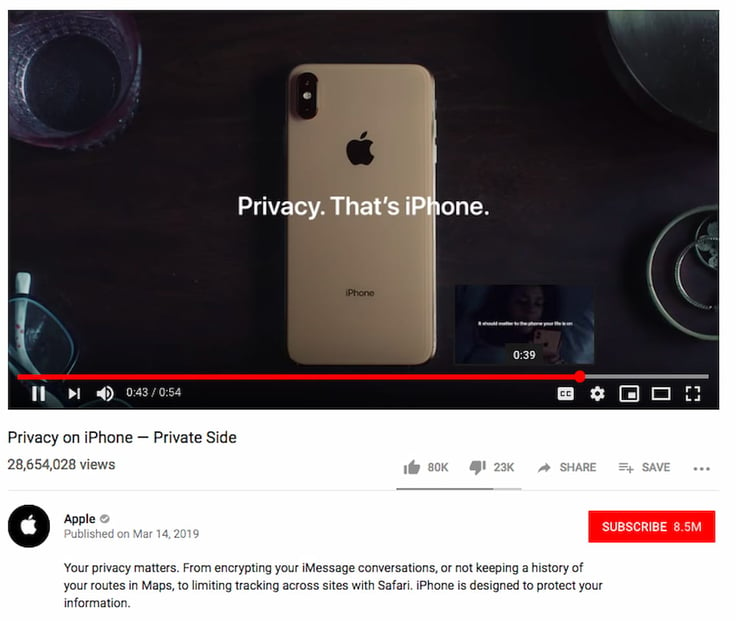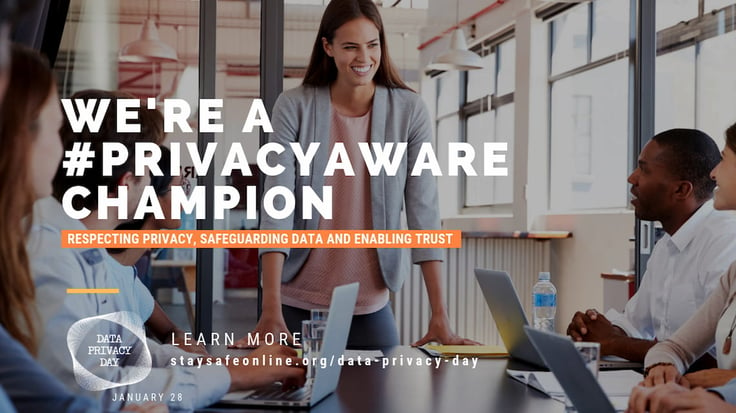The tech industry values its status as a disruptor and heralds itself as a champion of the people. However, as the tech industry grows and becomes increasingly intertwined with people’s daily lives, how will the new standards it set for other industries ultimately impact itself? Toby Cox, content writer and marketer at Clutch, explains how the tech industry is about to be disrupted.

A public relations lesson for the tech industry
The tech industry set a new standard of transparency in the consumer-company relationship and gave rise to the age of the socially conscious consumer. With an internet connection and Wi-Fi-capable device, anyone can access a seemingly infinite amount of information about businesses, how they manufacture their products, where they source materials, how they treat their workers, and whether their brand is fueled by shared values.
Although the tech industry has been heralded as the industry that gave power to consumers, its own relationship with corporate social responsibility has been murky and the subject of recent criticism, especially when it comes to balancing technological progress and people’s privacy.
Like the tech industry itself, people’s relationship with tech is constantly evolving
For a time, most people blindly trusted tech, social media, and the cornucopia of mobile apps all designed to make our lives easier. We gladly (or at least unknowingly) gave the technology industry our names and identifying information in exchange for convenience and the feeling of connectedness it provided.
Only up until recently have we thought that maybe this wasn’t such a great idea.
Every week there seems to be a new story of a data breach - If it’s not Facebook, it’s a hospital, parent support club, Microsoft, or an FBI non-profit.
Consumers don’t want their personal information to be compromised, but it seems to be unavoidable.
We use social media at work and in our personal lives, websites to research products and services we need, and IoTs and apps to track even more invasive metrics such as our health and location.
Additionally, banks, the businesses we shop at, healthcare providers we trust, and other organizations we associate with collect our data in their own databases.
People are increasingly wary of how the tech industry can collect and use their personal data. As a result, the tech industry is aware of people’s growing distrust of the devices they’ve come to depend on but also present a threat to their data’s safety.
In March 2019, Apple acknowledged this and released commercials highlighting their commitment to data protection.

The commercial poses to viewers, “If privacy matters in your life, it should matter to the phone your life is on” and emphasizes Apple’s commitment to protecting its customers’ privacy.
Data protection is a growing concern of consumers and companies need to start communicating what they do to ensure their customers’ personal information is protected.
People’s data is valuable - especially en masse
Data breaches such as the Cambridge Analytica and Equifax scandals show how organizations and businesses can exploit people’s data and impact their individual livelihoods and society as a whole.
Social media quizzes and apps that track health data or geolocation are all examples of where hackers, businesses, or other organizations might look to get the data they need.
Cambridge Analytica harvested the profile information from 87 million people from a quiz that saved their information.
Increasingly, apps track the users’ geolocation to offer a more localized and personalize user experience, but people are wary of apps that “know” their location. Nearly one-third of people (31%) don’t trust companies with their information, including their geo-location.
It’s not just “Big Tech” tracking people’s data - marketers, businesses, sports teams, and websites are too.
Businesses that have access to their customers’ data in bulk can get a better idea of what they want and how they can market their products or services to drive conversions.
Although people benefit from more personalized shopping and entertainment experiences, no one likes feeling like they’re being spied on.
Businesses can use awareness days such as Data Privacy Day on January 28 to talk with their customers about data privacy.

They can use this day as a time to educate their customers on how to protect themselves and communicate what they do to respect their customers’ privacy and data.
Companies are not limited to only awareness days to tell their customers how they are committed to protecting their data, but these awareness days could be a good way to get the conversation going.
People want the tech industry to uphold policies of social responsibility
The tech industry introduced a different level of transparency in the company-consumer relationship and gave rise to the social-conscious consumer. Now, people expect a high level of transparency from all industries, including the very one that sets these high standards: Tech.
Seventy percent (70%) of people think the tech industry needs to commit to corporate social responsibility and 72% of these people think the tech industry should do so by protecting people’s data and privacy.
Although the tech industry has shined a light on other industries and their veiled opacity on their inner workings, they have done little so far to hold itself to the same standards.
As a result, the trust people once placed in tech is now being replaced with skepticism and worry about what this may mean for the future.
In a recent study, nCipher Security found that 68% of people in the US fear identity theft and nearly half of Americans (48%) prefer to opt-out of data collection tools and services.
More people are becoming aware of the consequences of leaving the tech industry unchecked. As data breaches occur more frequently, many are left wondering whether their data was comprised.
Companies that do experience a data breach can still exercise social responsibility by letting their customers know in a timely manner.
The tech industry and businesses that rely on tech should focus their PR strategies on rebuilding trust
In its beginnings, the novelty of tech easily won people over. Now, however, people are beginning to realize the value of their personal data and the consequences of data breaches.
As a result, the tech industry should reconsider the “Do No Harm” mantra often chanted in startups and larger tech companies, consult the services of public relations agencies and experts, and think critically about how it can meet its own standards for transparency.
Toby is a journalist and storyteller, and has 8 years of experience specializing in content writing and marketing. She is currently a Senior Content Writer at Gartner, where she writes blog posts, guides, and works on social campaigns.She recently graduated from Harvard Divinity School with a master’s degree in religion and culture. As a journalist, her work can be found in National Geographic, The Diplomat, Summerhouse DC, and The Central Virginian newspaper.. Connect on LinkedIn or send an email







